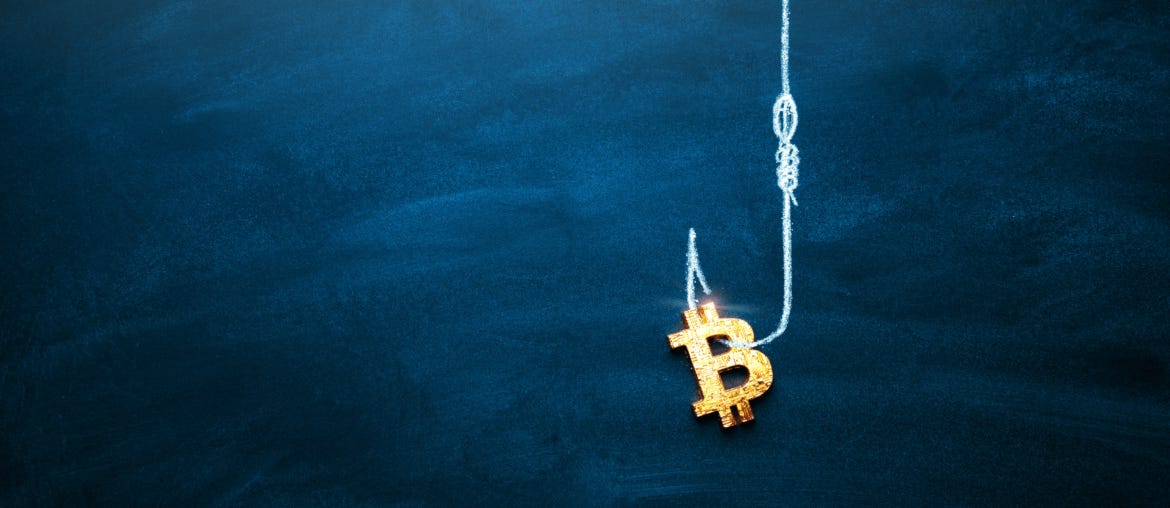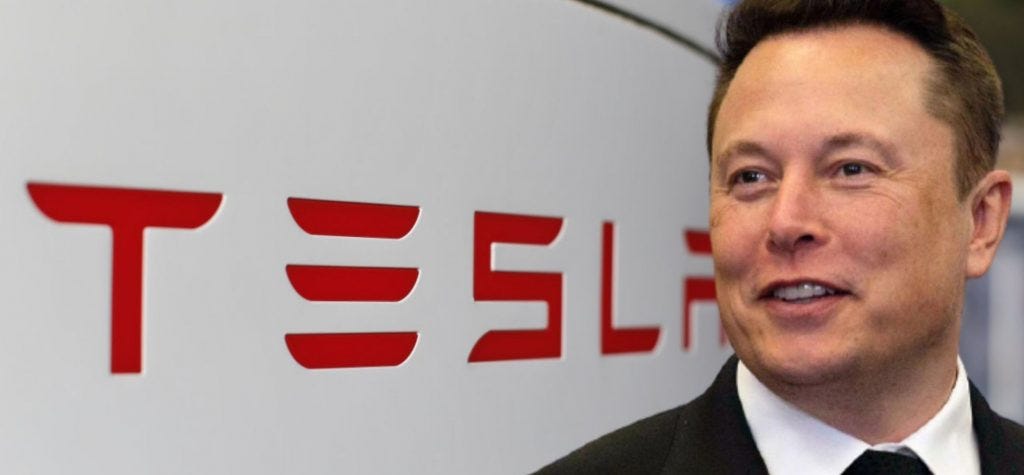Tesla's terrible week, SpaceX wants to connect your phone to Starlink, and crypto fraud booms. Newsletter #3
26/12/2022
In This Issue:
Another terrible week for Tesla
SpaceX wants your phone to connect directly to Starlink
Even more people were victims of crypto fraud in 2022
Tesla’s Terrible Week
Tesla's stock has experienced its worst week since the start of the pandemic in March 2020, losing $85bn in market value. The stock closed at its lowest point in more than two years on Friday after an 18% decline during the week. At the beginning of the year, Tesla was worth $1.2 trillion, it now stands at “just” $385 billion, a fall of 70%.
Downward pressure on Tesla's stock has increased in recent months due to Elon Musk's heavy selling of the stock to fund his $44 bn takeover of Twitter, as well as growing concerns about the amount of time he’s spending at Tesla vs his other companies.
Tesla's share price dropped 9% on Thursday after the company announced it would offer price discounts of $7,500 to US consumers on its Model 3 and Model Y vehicles. Later that day, Musk promised via Twitter that he would not sell any more of his Tesla stake for at least a year and said he was open to the idea of shares buybacks.
Musk has sold almost $23bn of stock since announcing his acquisition of Twitter, despite promising in April to stop doing so. The disposals have upset big investors who feel that Musk has abandoned the carmaker to focus on his new purchase. He’s promised to step down as CEO of the social media platform once he finds a replacement, following a poll of Twitter users on the issue.
Wedbush Securities tech analyst Dan Ives lowered his price target from $250 to $175 for the shares but maintained an "outperform" rating. Tesla's stock closed 1.8% lower at $123.15 on Friday.
The drama surrounding Musk has made Tesla the most profitable US company for short sellers (who profit when the stock goes down) this year, delivering paper profits of just over $15bn in 2022, according to S3, a New York-based consultancy.
SpaceX wants your phone to connect directly to Starlink
SpaceX received permission last week to increase its Starlink “broadband from space” constellation to more than 10,000 small satellites over the next few years. The company aims to offer service for smartphones via T-Mobile once the flying routers are operational, which could be as soon as the end of 2023.
SpaceX filed an application with the US Federal Communications Commission on 6 December, seeking authorization to equip some of its second-generation Starlink satellites with "direct-to-cellular" hardware.
This is a key regulatory hurdle for SpaceX, which must be cleared in order to fulfill its August promise with T-Mobile of connecting the two data networks. According to the filing, the new capability would allow Starlink to provide voice, messaging, and basic web browsing at peak speeds of up to 3 or 7.2 Mbps peak upload and download speeds of 4.4 or 18.3 Mbps. SpaceX has already launched 3,500 first generation Starlink satellites and says it could offer "full and continuous" smartphone coverage with 2,000 equipped Gen2 satellites as soon as 2024.
Crypto related fraud rises
According to a report by blockchain risk monitoring firm Solidus Labs, 2022 has seen a significant increase in the number of scam tokens in the digital-asset market.
Rug pull schemes, also known as "exit scams," involve the promotion of a token in order to steal from investors through misleading marketing, fake partnerships, and manufactured trading activity. These scams can also involve the "hard rug pull," where the scammer programs their token to steal from investors.
One recent example of this type of scam is the Squid Game token, which was a combination of a "honeypot" that prevented buyers from reselling their tokens and a marketing campaign with a website, white paper, and promotional video. From January to December, 117,000 scam tokens were deployed, a 41% increase on 2021.
The study also found that a significant proportion of Ethereum and BNB Chain tokens are programmed to execute rug pulls, with 8% of all Ethereum tokens and 12% of all BNB Chain tokens being identified as scams. In addition to this, almost 2 million investors have lost funds due to rug pull tokens.

Many of the scammers behind these tokens use crypto-to-fiat exchanges to both seed their scams and launder their proceeds. According to the report, "these fraudsters – benefiting from the fact that more than 99% of their malicious tokens have evaded detection under traditional approaches to scam identification – deposited and withdrew a combined $11 billion worth of ETH to/from 153 different centralized finance [CeFi] exchanges during the time period we studied."
The report highlights the significant gap in consumer protection, anti-money laundering, and market integrity in the cryptocurrency industry. While many tokens are not listed on pricing data sites due to a lack of verification, the report estimates that the total number of scam tokens deployed since September 2020 is over 200,000.
The report is directionally consistent with separate data from Comparitech, which suggests that the number of rug pulls climbed to at least 262 in 2022, more than five times the number in 2021.
Interesting Articles/Videos:
The history of diffusion, the tech responsible for image generation used in DALLE - https://techcrunch.com/2022/12/22/a-brief-history-of-diffusion-the-tech-at-the-heart-of-modern-image-generating-ai/?utm_source=tldrnewsletter
The Activity Pub protocol, a decentralized social networking protocol that helps power Mastodon - https://activitypub.rocks/
Thoughts on the future of cryptocurrency - https://www.publish0x.com/stealthex/will-cryptocurrency-rise-again-predictions-for-the-future-gr-xrgwpeg
Biggest NFT stories of 2022 - https://decrypt.co/116588/biggest-nft-stories-2022
A new way to achieve fusion -





